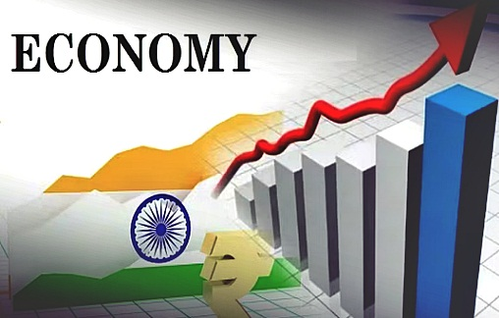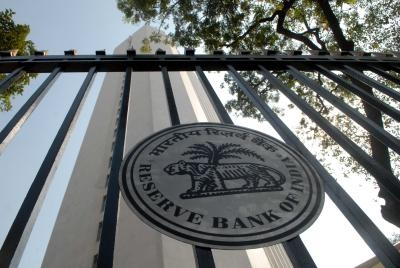Indian Real Estate Sector: Mapping India’s Path to Economic Expansion

Delhi NCR [India], March 23: The Indian real estate sector has played an essential role in the country’s economic growth over the years.
The sector encompasses many activities, including residential and commercial properties, retail and industrial spaces, and infrastructure development. The sector’s significant contribution to India’s GDP has made it one of the primary drivers of the country’s economic growth. This contribution is evident in one of the recent reports by the builder’s apex body, CREDAI.
A recent report by the Confederation of Real Estate Developers’ Association (CREDAI) states the real estate sector is expected to touch the market size of $1.3 trillion (13.8% of projected GDP) by FY 2034 and $5.17 trillion (17.5% of projected GDP) by 2047. In addition, the report also projects a 7-crore additional housing demand by 2030.
Manoj Gaur, President, CREDAI-NCR, CMD, Gaurs Group, said, “With the increasing real estate demands, the sector holds the potential as the primary economic pillar of this country. Regions like Delhi-NCR emerged as a major contributor to this development, witnessing a 3% growth in housing sales and projecting as one of the biggest realty hubs in the country. As an industry, Indian real estate has significantly impacted the economy’s overall growth and other macroeconomic indicators, including employment, government and banking eco-system revenues, and increasing per capita income. We feel extremely optimistic that real estate again will play a pivotal role as the country strives to multiply its economy.”
Currently, the real estate market stands at 24 lakh crore, highlighting the ratio of 80% and 20% split between residential and commercial, respectively. Amidst the increasing housing demands, the residential segment boasts an aspirational growth for Indian homebuyers.
Ankush Kaul, Chief Business Officer of Ambience Group, highlighted the contribution of the residential real estate sector, stating, “The residential real estate is the key driver of the construction sector in India. The residential real estate market catalyzes infrastructural development in the vicinity, including roads, utilities, schools, and other amenities, and impacts the country’s economy. The Millenium City Gurgaon is the prime example depicting that improved infrastructure not only enhances the lifestyle but also supports economic activities in the surrounding areas. We envision that the rising housing demands will benefit homebuyers and investors, thus impacting the country’s overall economic growth.”
Sanchit Bhutani, Managing Director, Group 108, said, “The commercial real estate includes large-scale infrastructure development, including office buildings, malls, hotels, industrial parks etc, which brings forth jobs in construction, architecture, property management, and many more. Cities with quality commercial real estate attract foreign and domestic businesses, further fostering business expansion and enhancing productivity. Among various cities, Noida emerges as one of the locations that is turning into a thriving hub, bringing a plethora of commercial spaces for businesses. As businesses grow and prosper in the region, they contribute to the country’s GDP and revenue generation. We anticipate this development will have a multiplier effect on the economy, thus influencing various other industries.”
Furthermore, as per the CREDAI report, 61% of the current supply is priced above Rs. 45 lakh among the residential segment. Over 87.4% of housing demand by 2030 is expected to be of homes priced more than Rs. 45 lakh.
“Both the residential and commercial real estate contribute significantly to India’s GDP growth by boosting economic activity, creating jobs, enabling wealth creation, and supporting infrastructure development and financial markets. CREDAI’s estimates shed light on the sector’s contribution to the country’s progress as it strives to become Viksit Bharat,” expressed Pawan Sharma, MD, Trisol RED.
Nayan Raheja of Raheja Developers, said, “India’s urbanization rate has substantially increased and is expected to increase to 40% by 2030. We foresee that this rise in urbanization will lead to a surge in demand for housing, commercial and retail spaces, and improved infrastructure facilities.”
“India’s premium commercial and residential real estate landscape will entice global and local investors. This will encourage business growth and increase productivity. As businesses expand and succeed, this will multiplier the country’s economy,” said Vidush Arya, Head-Strategy, Orris Group.
Amit Modi, Director, County Group, said, “The residential real estate sector significantly boosts India’s economic growth and catalyzes the infrastructural development in the nearby areas
. Cities like Noida are experiencing growth in top-notch residential properties with modern amenities, making the city a preferred choice for investors and homebuyers. This further enhances the dwellers’ lifestyle and supports the surrounding area’s economic activities. We foresee that this rising housing demand will impact the country’s economic growth in the long run.”
(ADVERTORIAL DISCLAIMER: The above press release has been provided by NewsVoir. ANI will not be responsible in any way for the content of the same)





